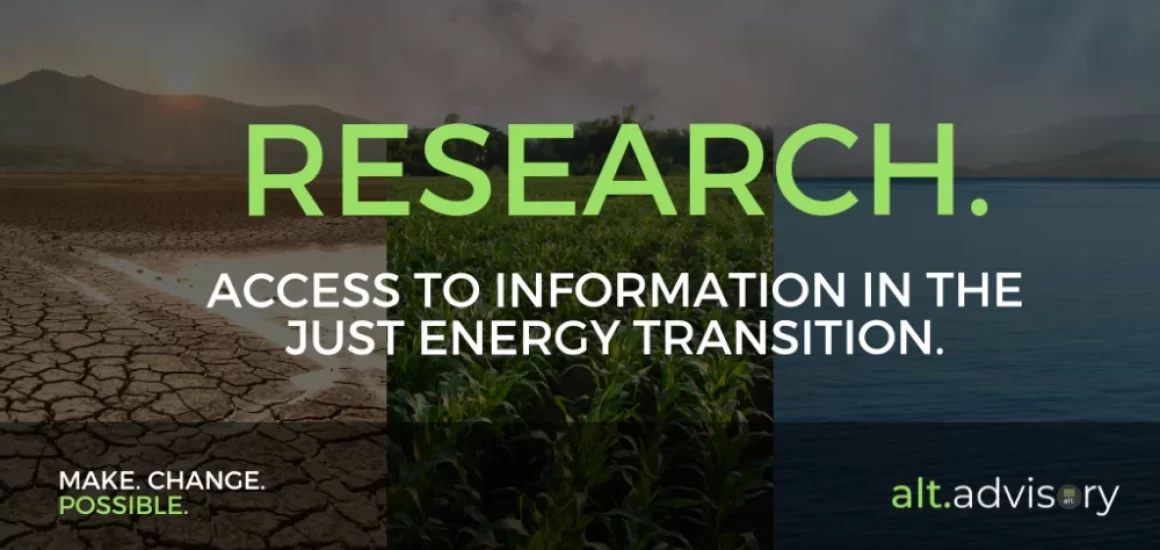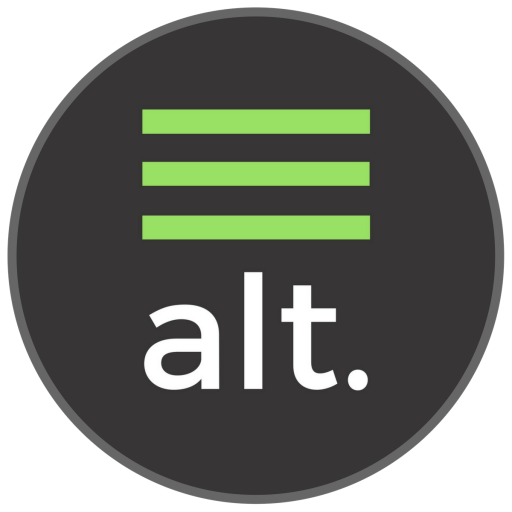New Report: Ensuring access to information in the Just Energy Transition
In the wake of the latest session of the United Nations Environment Assembly where an energy transition for nature and people was a key focal point, ALT Advisory’s Climate Justice & Sustainability practice has launched a new report on mechanisms to access information and knowledge in relation to South Africa’s Just Energy Transition (JET) .
This publication is part of exploratory research on the intersection of access to information and South Africa’s JET. It is published with support from the African Climate Foundation’s New Economy Hub.
This project is based on the idea that public access to information and knowledge, including through proactive publication and maximum disclosure, is a prerequisite for the just pillar that is central to the JET. This resonates with the Presidential Climate Commission’s proposed model for inclusive and collective decision-making, among other participatory processes. Without this foundation, it is unlikely that the JET, which has drawn significant international attention and financing, can be achieved in accordance with open governance and environmental justice principles.
The report includes:
- A summary of international instruments promoting general access to information rights and duties, and global best practice guidelines, such as defining environmental information as a special category of information.
- An overview of South Africa’s current access to information law – the Promotion of Access to Information Act 2 of 2000 (“PAIA”) – and challenges in its implementation and enforcement.
- A series of information notes and case study sections providing quick summaries of key content, including seven case studies of notable access-to-information requests in support of specific policy and legislative reforms in the past decade.
This report concludes that South Africa’s Just Energy Transition must be defined by, and serve as a catalyst for, a stronger framework for access to information. The importance of an information-rights based approach to the JET cannot be understated against the backdrop of our broader societal challenges. As such the report recommends efforts towards a Just Energy Transition foregrounds the following principles:
- Ensuring the JET embraces environmental democracy, and safeguards access to information as a fundamental right.
- Ensuring environmental information is treated as a special category of information which should be proactively disclosed in the public interest.
- Ensuring proactive disclosure and automatic access to JET-related information as an essential governance practice for public and private actors.
- Overcoming regulatory capture where public authorities are more responsive to industry interests and powerful elites, while discounting access to information needs of the public.
As the South Africa Human Rights Commission has found:
“In a society plagued by lack of transparency, accountability. and high levels of corruption, the right of access to information is of paramount importance to counter such deficiencies in South Africa’s democratic dispensation. The right of access to information forms the bedrock of the realisation of a number of rights, and more importantly for a government ‘in the sun’, by limiting secrecy and strengthening the means through which the public may both meaningfully participate in decision-making, and to hold government accountable.”
The next phase of this exploratory research will collate a web portal of existing information and knowledge sources relating to the JET, and a description of ongoing JET information requests.
For further information and inquires about contributions to this special project, please contact Tim Lloyd at [email protected].
Find out more about ALT Advisory’s Climate Justice & Sustainability practice here.
Access the full report here:


